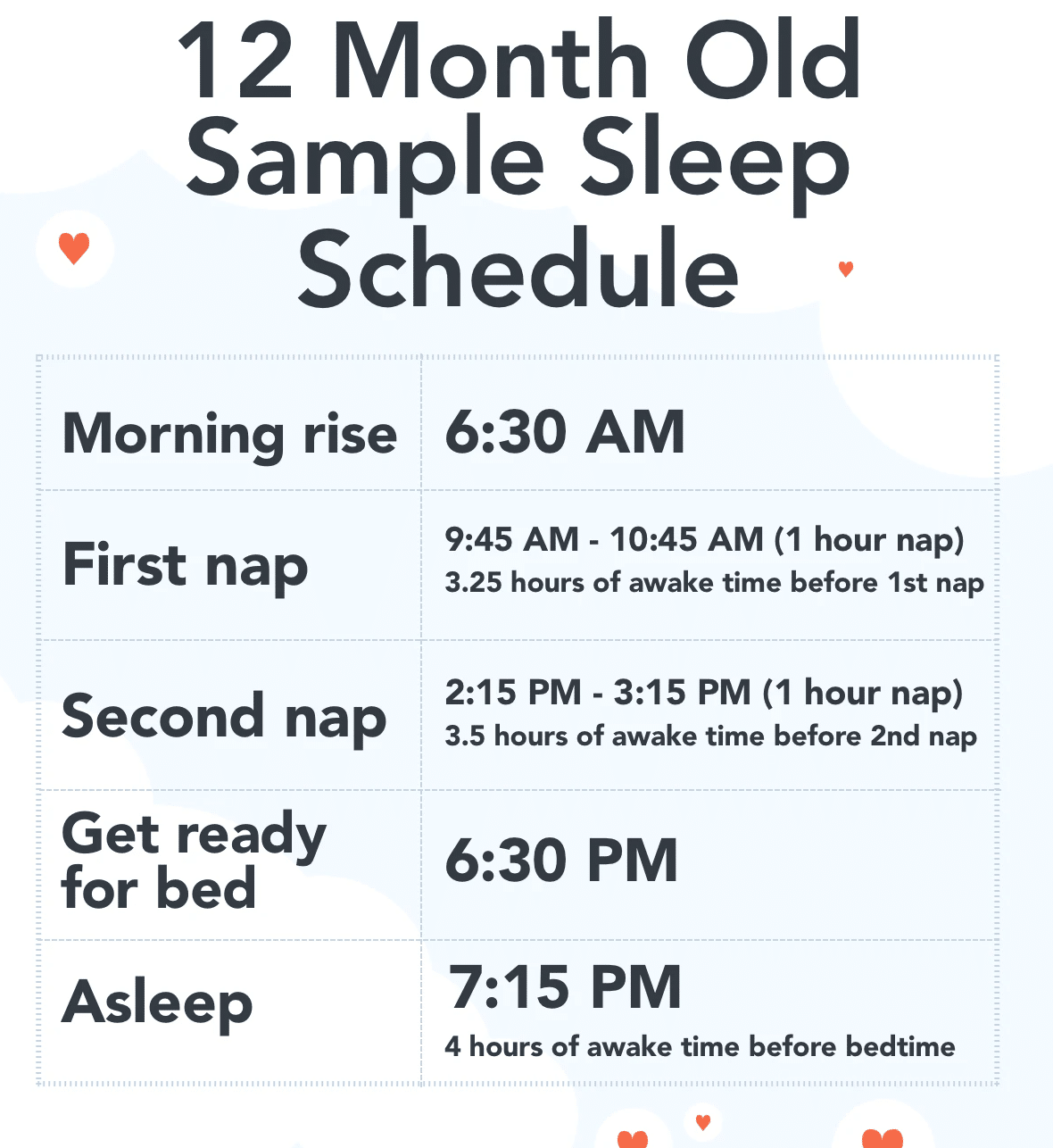Is your baby sleeping too much? Or, is 10-month sleep regression already getting hard on you?
Well, when it comes to babies’ sleeping patterns, every mother knows how hard it gets, and regulating your life cycle as per a baby’s sleeping cycle is a 24/7 job.
However, the question still clicks in. Is your baby getting enough sleep? Or, maybe average, or if they are sleep-deprived?
In this blog, we will solve all your queries regarding baby sleep care, so stay along and let the snores begin.
What Are the Recommended Sleep Hours for a Year-Old Baby?
To be exact, with rough numbers, a year-old child needs a little less sleep than the just-born babies. 13.25 hours may stand accurate for a year-old child’s sleep requirements.
These hours can be further divided according to the sleeping habits.
For example, if your baby sleeps for 11 hours at night, then divide their nap times during the day by two, each having 2-3 hours of sleep duration.
Reminder: These are just rough estimates, and every child is different.
Some may require a little more sleep, and some may require a little less, based on their energy and activities, but the number lies around this estimated given.
Therefore, don’t go hard on your baby. Instead, check out their routine and develop their habit.
Why Are Daytime Naps Required?
Daytime naps are essential for every toddler. As they grow, sleep regression starts to kick in.
This is due to the development of your baby’s brain and body. They learn to play or crawl, so when they are supposed to get out of bed, they would rather utilize the new activities they have learned.
However, this is not the solution. When your child is involved in an activity, it is understandable that after a while, they tire off after a bit; therefore, daytime naps help recover their energy.
Therefore, a newborn or a toddler must have ample daytime naps.
How Can You Regulate a Year-Old Baby’s Sleeping Schedule?
Getting a fixed sleeping schedule for your baby is a hard nut to crack since, at this age, they are hyperactive, demanding more and more energy supply (which they gain from naps) while utilizing their sleep timings for playing and frolicking (which they must not).
Therefore, it will take a lot of time to manage their sleeping schedule, but once you’re done, you will get a breather, too.
- Managing night sleeping schedule: Generally, a child requires around 11-12 hours of sleep per night. Setting a time at least 12 hours before waking time is important to maintain this. For example, if you want your baby to be up by 8 in the morning, they must sleep at least by 10 PM. This is also given that they don’t sleep immediately, so you must be in bed by 8 PM and start rocking them to sleep. It is usual for babies to take more than a couple of hours to have a sound sleep.
- Managing Daytime Nap Schedule: It is recommended that babies have at least two naps a day. However, some babies resist nap time; therefore, one nap is okay during the day, given that they have sound sleep during the night for at least 11 hours.
The first nap during the day must be after 3 to 4 hours of being awake after night, and then the second nap must follow after 3-4 hours of being awake after the first nap.
This way, the cycle completes properly, giving a wholesome sleep of around 13.5 to 14 hours daily.
How Much Sleep Do Younger Children Require?
The sleep cycle of children requires a hawk watch, for they grow up quickly, and therefore, their sleep durations fluctuate.
To understand quickly, refer to the table below and check whether your baby is undersleeping or is just a cute little sleepy head.
| Age Group | Age Range | Recommended Hours of Sleep (per 24 hours) |
| Infant | 4-12 months old | 12-16 hours (including naps) |
| Toddler | 1-2 years old | 11-14 hours (including naps) |
| Preschool | 3-5 years old | 10-13 hours (including naps) |
| School Age | 6-12 years old | 9-12 hours (including naps) |
Depending on the baby’s activities and energy levels, it is normal for these durations to fluctuate.
To gain a deeper understanding, the experts have further detailed the nap needs of children depending on their age and activities.
Remember, the younger the baby is, the more sleep they require, and so, depending on age, their sleeping hours may vary.
How to Improve Your Baby’s Sleep?
It is normal for kids to resist sleeping, but this doesn’t mean they should sleep less.
To ensure they have a good sleep during the night and nap during the day, here are a few proven things that you may try to ensure your baby’s sweet dreamings:
-
- Stay close to your baby: Though it is common to leave babies in the nurseries, medics have repeatedly said that babies and their mothers require bonding time. If you can, take your baby to sleep in a cot just next to you or in the same bed. Most babies wake up, and when they fail to see their parents nearby, they get struck with sleep anxiety. Never leave your baby alone or unattended.
- Refrain from picking them up while sleeping: If your baby starts crying in the middle of the night, the first instinct is to pick them up and rock them immediately, but don’t do this! This breaks their sleep cycle over and over again. Instead, soothe their back and sing a lullaby. Your presence is the antidote in itself. With time, your baby will learn to sleep as you train them.
Summing It Up!
Getting your baby to sleep and ensuring he has a good sleep is one of the toughest tasks around the corner, but with practice comes ease.
A baby who receives good sleep is far healthier and more active than a child who barely sleeps or oversleeps.
Therefore, looking after their sleeping patterns is not only necessary but also a necessity.
We have provided a detailed analysis of how to manage your toddler’s good night’s sleep, the best ways to ensure he gets a sound sleep, and how you can regulate his sleep patterns.
Be mindful, do your research, and see for yourself what suits your little one best.














